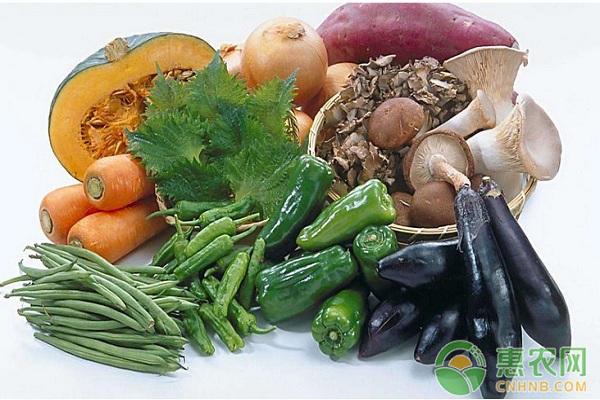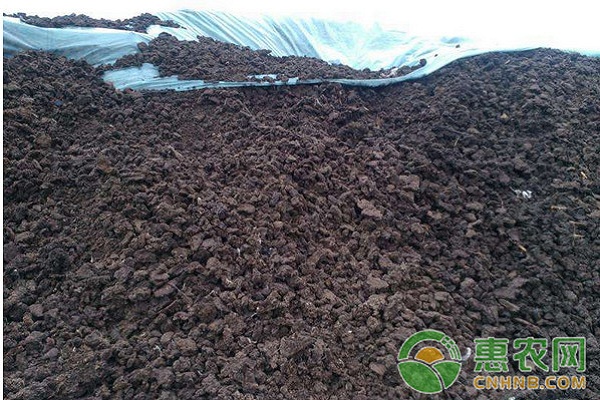Introduction of the application effect of organic fertilizer in vegetable cultivation
Organic fertilizers are better than chemical fertilizers because they have less pollution and improve the health of vegetables. Although the use of chemical fertilizers has increased the yield of vegetables, the environmental pollution and ecological damage caused by them cannot be ignored. The following is mainly about the use of organic fertilizers in vegetable cultivation. 1 Overview of Organic Fertilizers 1.1 Organic fertilizer Organic fertilizer refers to a fertilizer rich in organic matter, which not only provides a variety of inorganic nutrients and organic nutrients for crops, but also can fertilize and improve the soil. The sources of organic fertilizers are relatively broad. Most of them are farmed locally, and they are self-contained. The input cost is low and the fertilizer efficiency is relatively long. Currently, it has great application prospects in green food cultivation. 1.2 Classification of organic fertilizers 1.2.1 Manure fertilizer The most common organic fertilizer in vegetable cultivation is manure-based fertilizer, which is mainly derived from the excrement of humans and poultry. Human excrement is rich in nitrogen and can be used as a nitrogen fertilizer; while poultry excrement contains phosphorus and potassium, which is generally used as a phosphorus-potassium fertilizer. In actual fertilization, use appropriate amount of watering to avoid excessive phosphorus and potassium pollution to vegetables. 1.2.2 Straw returning Straw is straw, usually used to burn the straw into ash and then spread it over the field. Straw can effectively improve soil structure, increase soil nutrient, increase soil organic matter content, and maintain farmland fertility, which is conducive to improving vegetable quality and yield. 2 The importance of organic fertilizers in vegetable cultivation (1) It is conducive to improving the quality of vegetables. After the use of chemical fertilizers in vegetable cultivation, its nutritional value is greatly reduced, and some harmful substances remain, which is detrimental to human health, while organic fertilizer maintains the aroma of the vegetables themselves, making them better in quality. (2) Conducive to increasing the yield of vegetables. Practice has proved that cabbage, potato, green leafy vegetables and other vegetables have obvious increase in production after using organic fertilizer. (3) Conducive to improving soil structure. Organic fertilizers are often used to form agglomerate structures in the soil. This soil is good for storing moisture and maintaining gas permeability. It can also remove excess water when there is too much water. 3 Application of organic fertilizers in vegetable cultivation 3.1 Use of organic fertilizer and inorganic fertilizer 3.1.1 Scientific and rational use of fertilizer The fertilizer effect of organic fertilizer is long, but the fertilizer efficiency is not obvious; while the inorganic fertilizer fertilizer period is relatively short, generally 60~90 d, but the fertilizer effect is obvious. If organic fertilizer and inorganic fertilizer are used together and complement each other, it will inevitably lead to more nutrients for vegetable growth and better quality. Excessive use of organic fertilizers can cause excessive growth of vegetables, destroy the nutrient composition and reproductive balance of vegetables, and the nutrients that are assimilated by plants cannot be absorbed in time, resulting in a decrease in production yield. Therefore, in the use of organic fertilizers and inorganic fertilizers, it is necessary to scientifically and rationally match and design the most suitable scheme to ensure that each vegetable has sufficient nutrients for its growth in each growth period. 3.1.2 Avoid chemical reactions Since inorganic fertilizers are mainly chemical components, care must be taken in conjunction with organic fertilizers to avoid chemical reactions between the two, resulting in precipitation of organic fertilizers. The chemical reaction between chemical fertilizers and organic fertilizers will cause losses in the nutrients of fertilizers, and it is difficult to meet the normal growth requirements of vegetables. 3.2 Bio-organic fertilizer 3.2.1 Improving soil structure Bio-organic fertilizer is made from organic waste after microbial fermentation, deodorization and decomposing. It is rich in functional micro-organisms and trace elements, which can effectively improve soil structure. The microorganisms in the bio-organic fertilizer react with the microorganisms in the soil to promote the decomposition of the organic matter, so that the nutrients are easily absorbed by the vegetables, create a good environment for their growth, and provide a lack of trace elements for their growth. It should be noted that no matter what kind of organic fertilizer, it must be fully decomposed before it can be used. Otherwise, it will lead to yellowing of leaves and even stagnant growth and development. This is because the carbon fiber-decomposing bacteria in the unfermented organic fertilizer absorb nitrogen from the soil for reproduction, and the vegetables are poorly developed. 3.2.2 inhibit the proliferation of pathogens The beneficial microorganisms contained in the bio-organic fertilizer can effectively inhibit the proliferation of the bacteria, thereby enhancing the resistance of the vegetables to the disease, creating a suitable environment for the growth of the vegetables, and improving the quality of the vegetables. The use of bio-organic fertilizer not only reduces the pollution of waste to the environment, but also provides a large amount of organic fertilizer for the growth of vegetables, which has turned waste into treasure and plays an important role in promoting the cultivation of green vegetables. 3.3 Organic solid fertilizer Organic solid fertilizers are generally used in soilless culture techniques. Traditional soilless culture techniques rely on nutrient solutions, and the cost of cultivation is high, and the emergence of organic solid fertilizers has changed this situation. Its use makes the soilless planting technology easier to simplify, as long as the direct irrigation of clear water can achieve soilless cultivation, organic solid fertilizer can completely replace the nutrient solution, effectively reducing the cost of vegetable cultivation. In addition, the use of organic solid fertilizers has also led to a significant increase in the production of vegetables, which is a very important technological breakthrough for vegetable cultivation and has a very broad development prospect in China. The above is the application of organic fertilizers in the cultivation of vegetables brought by Huinong.com. The use of organic fertilizers plays an important role in improving the yield and quality of vegetables. In order to ensure the normal growth of vegetables, we must use fertilizers scientifically and rationally, improve the quality of vegetables, plant green and pollution-free vegetables, and solve food safety problems. More agricultural-related policies and agricultural technology knowledge are available in Huinong.com!
We're Professional Supplier Extract Powder manufacturers and suppliers in China specialized in providing high-quality products at low price. We warmly welcome you to buy or wholesale bulk Supplier Extract Powder for sale here from our factory. For a free sample, contact us now.
Supplier Extract Powder,Supplier Extract ,Supplier Powder Manufacturer in China Shaanxi Kang New Pharmaceutical co., Ltd. , https://www.bodybuildingoil.com
